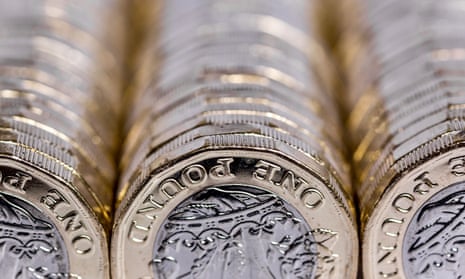The pound rose to an 18-month high against the euro on Tuesday as fears over rising Covid-19 infections triggered a sharp fall in German investor confidence.
Sterling hit €1.1833 against the single currency, its highest level since February 2020, after investor morale in Europe’s largest economy fell to its lowest level in nine months.
The widely followed ZEW indicator of economic sentiment in Germany fell for the third month running in August, tumbling by 22.9 points to 40.4 points. That shows the weakest economic expectations since last November, when Europe was gripped by the second wave of the pandemic.
“Expectations have declined for the third time in a row. This points to increasing risks for the German economy, such as from a possible fourth Covid-19 wave starting in autumn or a slowdown in growth in China,” said the ZEW president, Prof Achim Wambach.
Against the dollar, the euro hit its lowest level in four months, below $1.172.
The pound has strengthened since England lifted its lockdown restrictions in mid-July, on hopes that its recovery will remain on track. Last week the Bank of England indicated that interest rates were likely to rise sooner than anticipated, as it believes unemployment has peaked and inflation is likely to hit 4% by the end of the year. In the eurozone, rates are expected to remain at zero for some time.
ZEW’s poll of financial market experts from leading German companies also found that their inflation expectations had dampened, although their view of current economic conditions had improved.
Covid-19 cases have been rising in Germany in recent weeks, and are expected to keep climbing as holidaymakers return, raising speculation that new lockdown measures could be introduced. State leaders have set out new coronavirus regulations for the coming months, including abolishing free rapid testing to push people to get vaccinated.
“The chances are increasing that the peak speed of economic recovery is already behind us, and more time may be needed for a full economic recovery and the normalisation of monetary policy,” predicted Alex Kuptsikevich, a senior financial analyst at FxPro.
German firms have also been hit by the global supply chain problems, and there is also uncertainty ahead of September’s national elections, which could lead to complex coalition negotiations.
